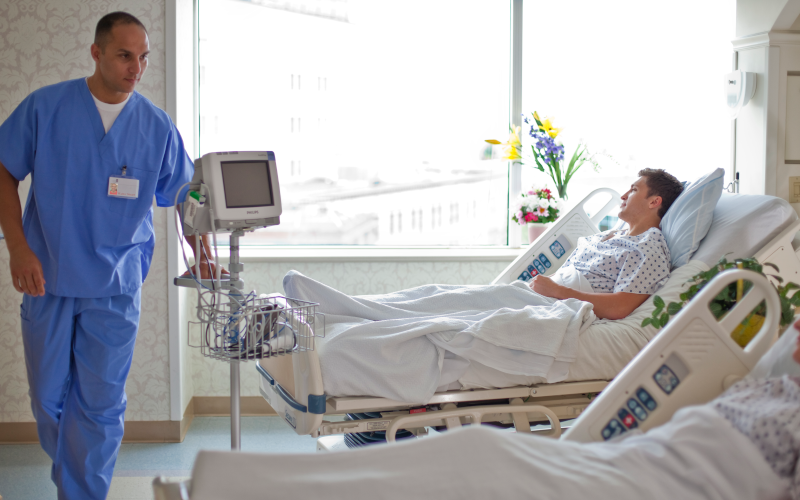Due to the constantly changing framework conditions, manufacturers of medical technology products must be able to react flexibly. Legal changes, growing customer demands on product quality and innovations in the medical device industry lead to strong cost and competitive pressure for medical technology product manufacturers.
In cooperation with Philips, the Institute for Workflow Management in Healthcare (IWiG) conducted a project to analyze the health economic benefits of medical technology under the direction of Prof. Dr. rer. oec. Dipl. Soz.-Päd. Michael Greiling.
The Philips IntelliVue Guardian Solution (IGS) with Early Warning Score was analyzed under the aspect of economic efficiency. The application supports staff on general wards in closely monitoring patients, detecting critical changes in their state of health at an early stage and initiating the necessary measures.
Using the award-winning ClipMed PPM software solution, five different treatment pathways for hip TEP were compared. The modeling of the treatment paths and a subsequent analysis in conjunction with an activity-based costing generated transparency by mapping and calculating changes and improvements in the process flow in detail through the use of the IGS. The information obtained provided information on the economic benefits of the application.
The results showed that standard care without IGS, while sacrificing a number of qualitative advantages, is only marginally less expensive. Patients benefit from greater safety, and physicians and nursing staff experience a noticeable reduction in workload. Philips IGS enables complications to be detected in good time, so that costly intensive care can be prevented.

















